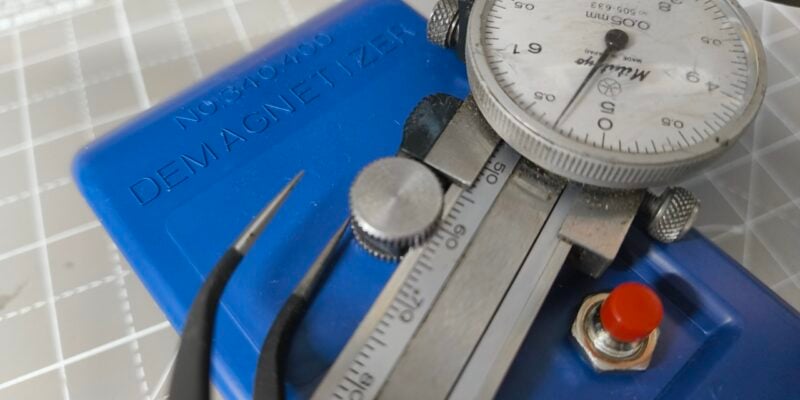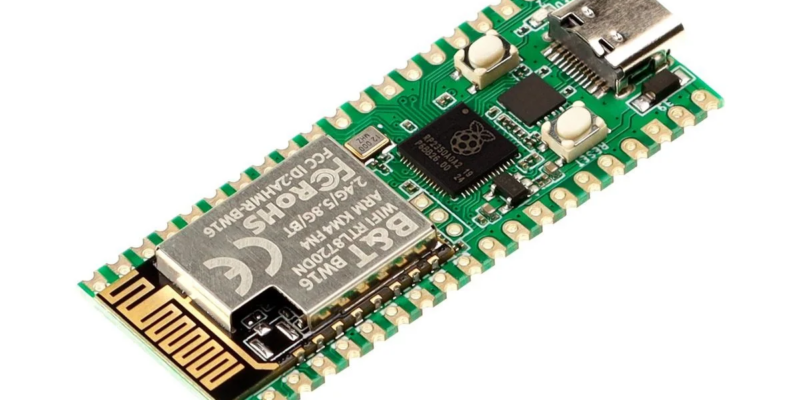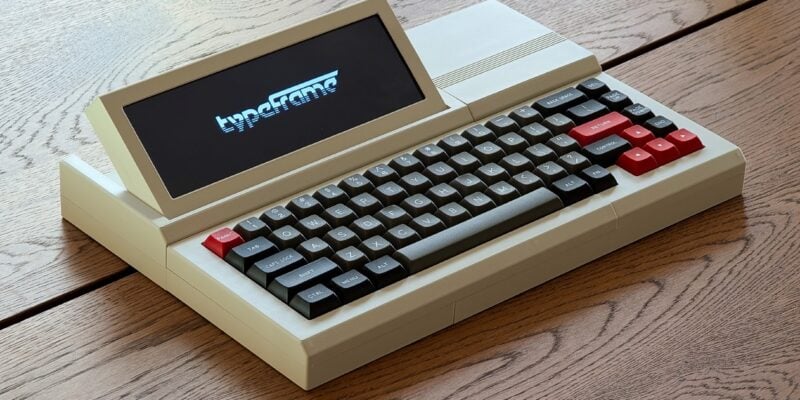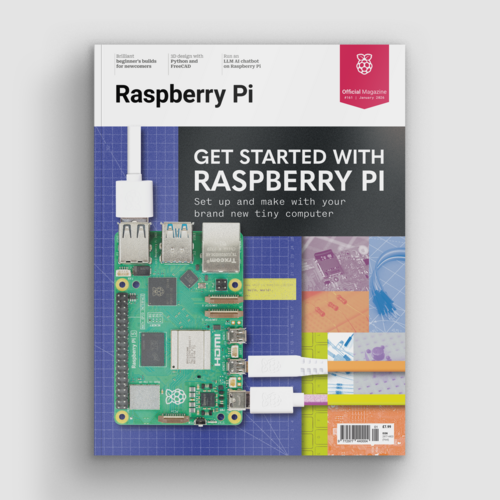Workshop Rudolph the Red Nose Reindeer
By Rob Zwetsloot. Posted

How to start with Python or programming in general is a question that the Raspberry Pi Foundation has been asking – and answering very well! – for over a decade now. When Bas op ten Berg was faced with this question, he went a slightly different route.
“The Workshop Rudolph The Red Nose Reindeer is a low-entry approach in starting learning to program Python with Raspberry Pi Pico,” Bas explains. “I created this workshop when I was requested for opportunities to entertain a team of non-technical colleges, and get them enthusiastic with a positive programming experience.”
Specifically, Rudolph uses MicroPython. Bas was “astonished” by how quick and simple it was to create scripts for Pico and get them running, which seemingly served as inspiration for his programming experience.
Advertisement
Get started with Raspberry Pi – everything you need to know to start your journey!
“I foresaw a big blinking LED as a red nose, an animated leg (actuated by a simple servo), a turning star connected to a potentiometer, and lots of blinking lights to support the Christmas theme,” Bas says. “Simple, versatile to support users in programming their individual scenes, simple to connect by USB, and easy to update and modify with Thonny. Besides all of this, Pico was available at an attractive price.”
Very shiny nose
While drafting up the project, Bas made several examples using LEDs, servos, speakers, illustrations, etc., with the final version also using laser-cut and 3D-printed parts for people to construct.

“Rudolph, the burning wood-stove, the house, and the star are all laser-cut and glued together,” Bas tells us. “There is a cut-out mounting hole to keep the micro servo in place. The front leg of Rudolph is glued to the servo stick. The potentiometer is mounted at the top of the chimney of the house. LEDs are mounted in the Christmas tree, Rudolph’s nose, and in the house. Pico is clicked in a 3D-printed bracket to keep it in place, with the USB connector aligned to right. I created a full-option sketch where Rudolph’s nose is blinking, his front leg is twisting, and all LEDs have their own rhythm. By turning the star knob, the analogue value changes, which then changes several parameters in the [script] to make it even more active.”
Down in history
The workshop was quite successful, according to Bas, with attendees having the planned ‘positive programming experience’.
“They were enthusiastic and eager to get started,” Bas mentions. “At first, they were very surprised to have an electronic Christmas-themed Rudolph which they could connect to their own laptop. After a starting introduction of 30 minutes, they could get the first Christmas lights blinking and the front leg moving. Once they were able to understand how to program a scenes themselves and get interaction with the rotating star, I saw various applications which I hadn’t foreseen myself.”
Bas is currently planning other holiday-themed workshops like this – such as an Easter bunny – and is going to bring back Rudolph next Christmas: “Having fun with programming with a low-entry approach is applicable throughout the whole year, and shouldn’t be limited to the Christmas season only.”

Rob is amazing. He’s also the Features Editor of Raspberry Pi Official Magazine, a hobbyist maker, cosplayer, comic book writer, and extremely modest.
Subscribe to Raspberry Pi Official Magazine
Save up to 37% off the cover price and get a FREE Raspberry Pi Pico 2 W with a subscription to Raspberry Pi Official Magazine.
More articles

Unusual tools: degaussing tool
In the simplest form, a degaussing tool is a coil of wire that generates an alternating magnetic field that demagnetises ferrous metals.
Read more →

RP2350 Pico W5 review
It’s Raspberry Pi Pico 2, but with a lot more memory.
Read more →

Retro 3D-printed Typeframe PX-88
Distraction-free writing on a piece of new, vintage kit – it’s like the olden days, but better.
Read more →
